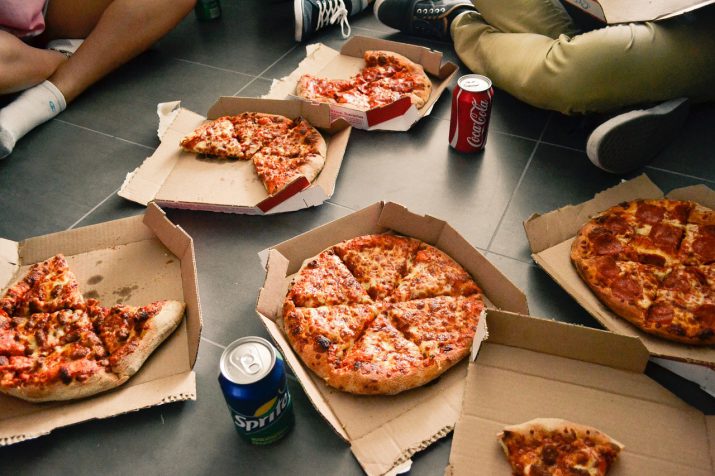About once a week my boyfriend and I sit down to watch movies and munch on a glorious pile of “bad” food. We enjoy our cheat meals: anything from pizza, potato chips and mini corn dogs to an entire package of Oreos.

If you know either of us (or follow our social medias) you’ll see that we both lead lives of health and fitness. We portray ourselves as “fitspo” models for anyone looking to find motivation, workouts, or nutrition tips. We preach the importance of a good exercise program and a healthy diet. However, if you saw us on those nights in which we dedicate to a heap of junk food you might be slightly confused. Aren’t we supposed to be the healthy ones? How do we stay looking “fit” while eating such bad foods?
The truth is, we use these cheat meals to help our diet
Now you may be asking yourself, wait, how do these excessive amounts of sugar, fat, and carbs HELP you?
Let me explain…
Have you ever attempted to lose weight with little to no luck? Have you felt as if no matter how little calories you consume, or how many hours of cardio you do the weight just refuses to come off? Maybe you dropped those first twenty pounds easily, but those last five just wont come off. Trust me when I say I, too have dealt with this issue, and I know just how frustrating it can be.
I promise you that your failed attempts are not because of your bad luck or poor genetics. You just weren’t aware of how to control your weight loss correctly. To understand this problem, you need to understand one of the most important aspects in weight loss- a hormone called leptin.
What is Leptin?
In short, leptin is a hormone responsible for the rate at which you lose fat. It functions to slow your metabolism and conserve energy in times of “starvation” (aka- dieting).
See, when you are not restricting your calories, your leptin levels are high. However, during a diet that consists of restricting calories , your leptin levels will start to plummet as your diet goes on, causing fat loss to be dramatically reduced. Why? Low levels of leptin tell our brain that our fat stores are low and we are at risk of starvation. Your body sees this remaining stored body fat as an asset to survival when food is scarce, so it holds on to it.
Research has shown that leptin levels drop by as much as 50% after just 7 days of dieting. This means after only one week of your diet, your fat loss rate is reduced 50%! Thankfully, though, you can counteract this.
So.. why cheat?
You were wondering earlier how excessive amounts of sugar, fat, and carbs help your diet. The answer is simple… it increases your leptin levels.
This technique known as “cheating”, or “re-feeding” is based off of this idea that leptin is strictly correlated with your caloric intake. After a period of dieting, when your leptin levels have decreased, you need to bump them back up again in order to continue losing fat. This is done by significantly increasing your calories within a short time period. Surprise- it’s your cheat day.
Now, you must keep in mind that your cheat days should somewhat mirror your fat loss goals. An entire day filled with endless donuts, ice cream, pasta, cookies, and pizza may be a bit excessive for someone looking to lose a large amount of fat in a shorter time period. Sticking to one or two of those choices is enough to do the trick. Many people like to simply do a cheat meal, rather than an entire day. Either is fine, though an entire day may be too much for someone looking to lose a very large percentage of fat rather quickly.
There you have it… cheat meals really are used to help your fat loss goals. Though, they are also used as a reward for sticking to your diet all week. While they give your body a break from your diet they give your mind (and sanity) a break as well. Give yourself a day to forget about calories and enjoy yourself without feeling guilty about it, and I promise you your fat loss journey will be more enjoyable AND more effective!



